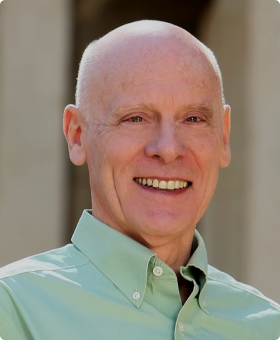This article was originally authored by Dr. Hugh Ross and is republished here with permission from Reasons to Believe, a ministry dedicated to integrating science and faith. All rights reserved by the original publisher. To explore more resources, visit their website Reasons to Believe.
Are animals economists?
Adam Smith, founder of modern economics, famously wrote that no dog ever traded one bone for another, arguing that trade makes us human.[1] However, new research suggests that some animals may engage in simple forms of barter that challenge this long-held view.
Macaques and the value of trade
A field study in Indonesia found that long-tailed macaques living around the Uluwatu Temple in Bali have learned to “trade” with humans. The macaques steal valuable items such as sunglasses, wallets, and smartphones, then exchange them for food treats of varying worth.[3] The study demonstrates an impressive ability among macaques to assess value and negotiate for better returns.

Older macaques were especially skilled at identifying and “borrowing” higher-value items, having learned over time which goods would yield the best food trades. Their ability to recognize and act on perceived market value parallels basic human trade behavior.

Personal observations affirm research
Dr. Hugh Ross recounts observing similar behavior among macaques in Gibraltar, where food treats were exchanged for cooperative photo poses. These real-world examples reinforce the scientific findings that animals can adapt social and trading behaviors in response to human interaction.

Philosophical and theological implications
These behaviors raise interesting questions about human exceptionalism. If animals can assign value and barter, does that blur the line between human and animal intelligence?
Soulish animals and design
Dr. Ross argues that this evidence supports, rather than challenges, the biblical view of human uniqueness. In Hidden Treasures in the Book of Job, he explains that God designed nephesh (soulish) animals—such as macaques—to socially relate to and serve humans.[5] Their capacity for learned, relational behaviors demonstrates purposeful design for interspecies connection, not equality.
Humans, created in the image of God (Genesis 1:26), possess a unique capacity to relate to and serve the Creator. Macaques remind us that just as they reach their full potential through connection with humans, we fulfill ours through relationship with God.
Endnotes
- Adam Smith, “Of the Principle Which Gives Occasion to the Division of Labour,” An Inquiry into the Nature and Causes of the Wealth of Nations (1776). ↑
- Dan Sanchez, “Trade Is What Makes Us Human,” Foundation for Economic Education (2017). ↑
- Jean-Baptiste Leca et al., “Acquisition of Object-Robbing and Object/Food-Bartering Behaviours,” Philosophical Transactions of the Royal Society B (2021). ↑
- Leca et al., p.8. ↑
- Hugh Ross, Hidden Treasures in the Book of Job (2011). ↑
Go Deeper

Dr. Hugh Ross
Hugh Ross is the founder and senior scholar of Reasons to Believe, an organization dedicated to communicating the compatibility of science and the Christian faith. While in college, Hugh committed his life to Jesus Christ after his study of cosmology convinced him of the existence of a Creator, specifically the God of the Bible. Hugh holds a degree in physics from the University of British Columbia and a PhD in astronomy from the University of Toronto. After five years on the Caltech faculty, he transitioned to full-time ministry and still serves on the pastoral team at Christ Church Sierra Madre. His writings include journal and magazine articles, hundreds of blogs, and numerous books-Why the Universe Is the Way It Is, Improbable Planet, Designed to the Core, and Rescuing Inerrancy, among others. He has spoken on hundreds of university campuses as well as at conferences and churches around the world and participates in the weekly Stars, Cells, and God podcast.


.webp)
.webp)
.webp)
Leave a comment